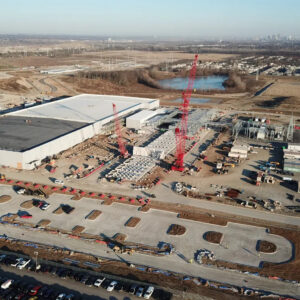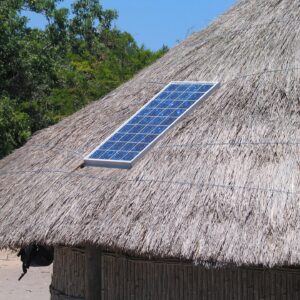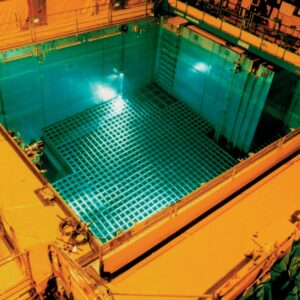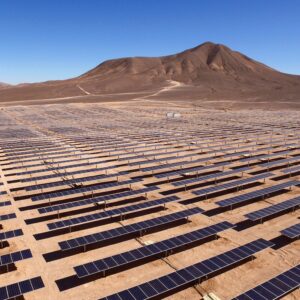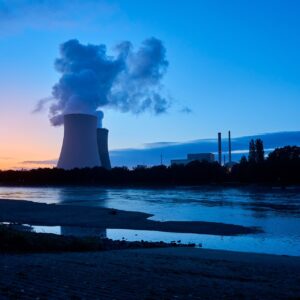Lamenting the “obscene” energy demands artificial intelligence (AI) will command, a recent New Yorker article asks, “How can the world reach net zero if it keeps inventing new ways to consume energy?” The energy needs of cryptocurrency mining and clean-tech manufacturing have also raised concerns that the world will not meet climate targets. The reality...
How African companies are solving the continent’s solar finance problem
"For African countries, the biggest obstacle to building out the solar industry is that the financing tricks used in China, Europe, and the U.S. to clear the way for widespread solar adoption — government subsidies and utility payments to solar-equipped customers — can’t work in places where states, utilities, and households are all chronically strapped for cash. At the same time, supply chain problems and the widespread perception by financial institutions that investments in Africa are high-risk mean that the cost of solar is far higher than in other places — the same solar system costs twice as much in Ghana as in the U.S. Bringing down the cost of capital requires a stronger track record of profitable investments than what the industry has been able to show so far. That means new business models are needed to make solar affordable for a broader base of customers."
Let’s Get America to Recycle, Say Orano and SHINE
"To date, the US has restricted domestic nuclear fuel recycling due to proliferation concerns, but that could be changing. The Biden administration is more open to ending the moratorium on recycling in light of the potential benefits of recycling fuel, according to an analysis by Physics Today."
Keurig Plans Launch of Compostable Coffee Pods
"Keurig Dr Pepper said that it would begin beta testing of the new Alta system, which will take the compostable pods, as early as this fall. The company plans to refine the product further before wide release of the Alta."
The SEC’s climate disclosure rule will be very expensive and produce minimal benefits
"We can all agree that if the climate changes, then most businesses will suffer consequences. But to ask each firm to assess the material impact of climate risks on its 'business strategy, operations, and financial conditions' would require firms to become experts in how and when such risks will manifest. This is beyond the scope of firms to assess and beyond the scope of the SEC to require."
Arizona just added its biggest grid battery yet, with another coming soon
"Data centers and AI computing have triggered a historic increase in near-term electricity demand, catching utilities and grid planners by surprise across the country. Some utilities are looking to increase their investment in gas turbines to keep pace with demand, but that approach locks in new carbon emissions for years, if not decades. Google’s Arizona strategy models a different path: bringing dispatchable clean energy online in the places where it’s building the data centers."
Amid all the climate gloom, let’s not ignore the good news
"Clean energy is also benefiting from a flurry of technological innovation. After concerns that supply bottlenecks for critical minerals such as lithium could hamper the production of EV batteries, the industry responded by quickly bringing to market new battery chemistries that will reduce their dependence on key minerals. And innovation is moving fast in other emerging low-emissions technologies such as electrolysers for producing hydrogen and new processes for making green steel."
Why Conservatives Should Own the Climate Issue
The best climate policies are good for people and the planet.
Nuclear Energy Is the Only Way to Achieve Maine’s Climate Goals
"Maine used to host a nuclear power plant that generated 119 billion kilowatt hours (kWh) of electricity — enough for the entire state’s energy needs. The Maine Yankee Atomic Power plant in Wiscasset provided good jobs and massive tax revenue for the town, with the plant contributing 91% of the town’s tax base in 1996. Plant employees who lived locally did not have to pay for their utilities, a great perk for many Wiscasset residents. After several referendums against the plant and maintenance that became too expensive to fix, Maine Yankee was closed in 1996. Today, almost 20 percent of Wiscasset residents live below the poverty line."
Climate change is warming public opinion to nuclear power
"So, today, some leaders of the anti-nuclear community are headed to the exits, while a new generation of pro-nuclear climate activists enters to take their place — although, admittedly, the shift is not universal. It is a change mirrored in Congress and among the public. In the face of the existential risk of climate change, there has been a significant reconsideration of nuclear energy and, I believe, it will lead to the widespread deployment of a new generation of advanced nuclear units. What a difference."
